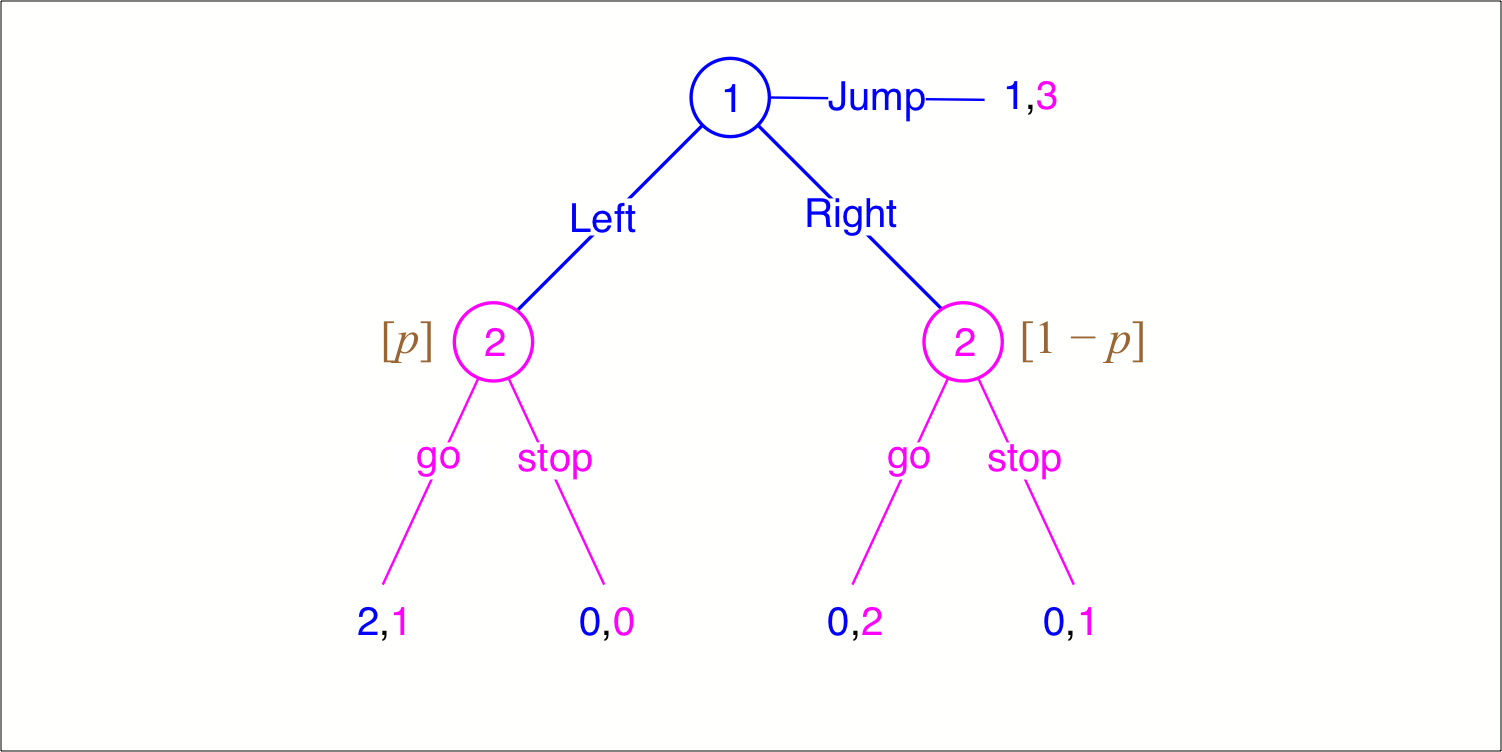
Abstract
We have seen that Nash equilibria of extensive-form games can be undesirable because they can rely on incredible threats at off-the-equilibrium-path subgames. We were sometimes able to refine away such undesirable equilibria by strengthening our solution concept—demanding subgame perfection, which requires that the restriction of a strategy profile to any subgame be a Nash equilibrium of that subgame.
I offer an example extensive-form game to demonstrate that subgame perfection will not eliminate all undesirable equilibria of extensive-form games.
The concept of perfect Bayesian equilibrium for extensive-form games is defined by four Bayes Requirements. These requirements eliminate the bad subgame-perfect equilibria by requiring players to have beliefs, at each information set, about which node of the information set she has reached, conditional on being informed she is in that information set.






